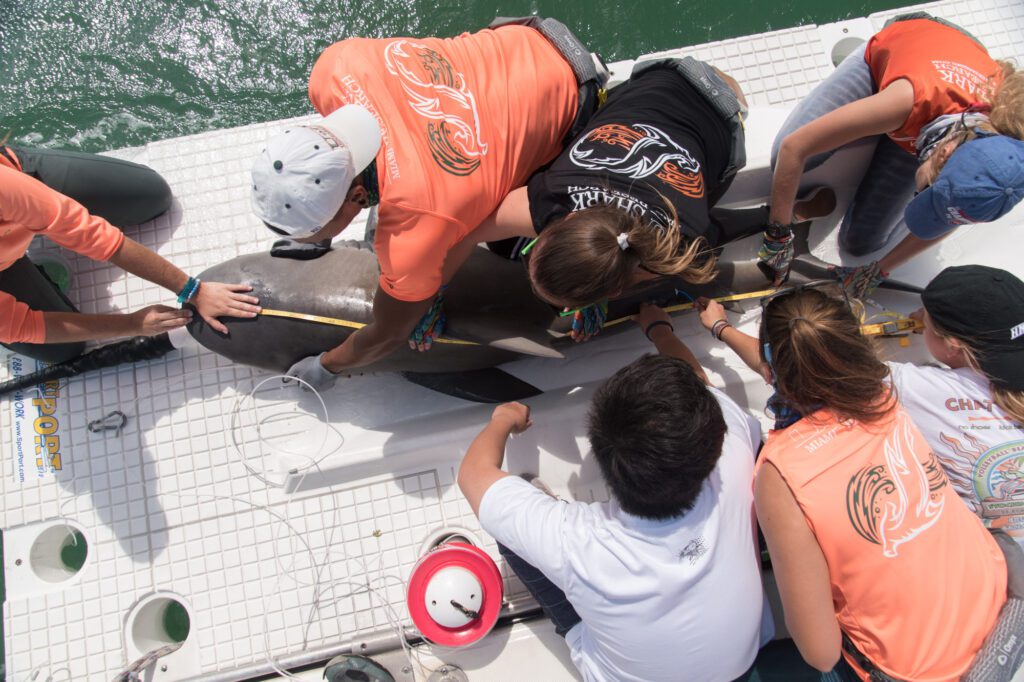Climate change isn’t a future threat; it’s a daily reality. Rising seas, stronger storms, and hotter days are already reshaping how people live, work, and interact with the environment. In South Florida, these changes feel especially urgent. But beyond the alarming headlines, important work is being done, led by scientists who are not only tracking these shifts but also actively seeking solutions.
A lot of that work is happening at the University of Miami’s Rosenstiel School of Marine, Atmospheric, and Earth Science. Located on Virginia Key, just off across a causeway from Miami, the school is a hub for groundbreaking research. Inside its labs and along nearby coastlines, researchers are tracking hurricanes, decoding coral reef decline, studying how sea level rise affects communities on the ground, and more. Their findings help shape public policy, inform planning, and protect the ecosystems people rely on.
To meet the growing need for skilled professionals in this space, the school offers a Master of Professional Science (MPS) programme. It’s an intensive 12-to-18-month degree designed for students who want to apply science to real-world problems. It’s fast-paced, practical, and tailored to those eager to make an impact.
Students choose from 15 professional tracks, each housed within one of five departments: Atmospheric Sciences, Marine Biology and Ecology, Environmental Science and Policy, Marine Geosciences, and Ocean Sciences. The programme format allows students to focus their attention on the issues they care about most, whether that’s rebuilding fish populations, predicting the next hurricane, or building climate-resilient cities.

Founded in the 1940s, the Rosenstiel School of Marine, Atmospheric, and Earth Science has become a world leader in oceanographic and atmospheric research. Source: University of Miami
One of the most hands-on tracks is Aquaculture. It’s a growing field –– aquaculture now supplies more than half of the seafood consumed worldwide. This track teaches students how to farm fish in a sustainable manner. The curriculum goes beyond biology, touching on economics, marketing, policy, and environmental impact. At the University of Miami Experimental Hatchery, students work directly with live species — from broodstock to larvae — and get real experience in nursery and grow-out systems. Some semesters even offer field courses in commercial-scale aquaculture operations.
For students focused on climate action, the Climate & Society track opens doors to a wide range of career paths. Climate-related jobs are booming across government, nonprofits, and business sectors. Whether it’s developing clean energy, tracking emissions, or planning for future risks, the need for climate-literate professionals has never been greater. This track is designed to meet that demand, offering training in analytics, resilience planning, and climate justice. Miami itself plays a key role, serving as a real-time case study for issues ranging from sea level rise in Miami Beach to ecosystem preservation in the Everglades. Through partnerships with the Climate Resilience Institute and other university departments, students gain access to cross-disciplinary projects and professional internships.
The Marine Conservation track is ideal for those passionate about protecting marine life. It combines fieldwork, data analysis, policy, and communication. Students learn how to monitor habitats, influence conservation law, and build community-focused solutions. Miami’s coastal waters offer the ideal environment for exploring conservation strategies in both urban and natural marine systems. Students also connect with leading programmes like the Shark Research and Conservation Programme and Rescue a Reef, gaining exposure to real-world impact projects.

The MPS curriculum enables students to earn their degree in as little as 12 months. Source: University of Miami
Natural disasters are increasing in frequency and intensity. The Natural Hazards & Catastrophes track responds by training students to assess and manage risk. The curriculum draws from atmospheric science, geology, oceanography, and data analytics. Students develop technical skills in programming, GIS, and remote sensing, and prepare for careers in insurance, emergency management, engineering, and other fields.
“The Natural Hazards and Catastrophes track allowed me to deepen my understanding of the various natural hazards and the scientific principles that underpin them,” says Douglas Flessner, an alumnus. “Through my coursework, I also learned about the essential role of advanced technology and analytics in predicting and preventing disasters. My background in the Coast Guard, combined with my academic training, equipped me with the knowledge and skills necessary to start a career with a Catastrophe Advisory team in the reinsurance industry.”
Another essential track is Environmental Geology. As cities grow and sea levels rise, geologists are needed to address issues such as pollution, saltwater intrusion, and land subsidence. This track prepares students to work in environmental assessment, remediation, and sustainable land use planning. Faculty members bring deep expertise in geochemistry, geophysics, and hydrogeology, training students in both field techniques and laboratory analysis.
Beyond these, students can specialise in Coastal Zone Management, Exploration Science, Fisheries Management and Conservation, Marine Mammal Science, Broadcast Meteorology, Tropical Marine Ecosystem Management, JD/MPS, Applied Remote Sensing, or Weather Forecasting.
While there’s no thesis required, the experience is anything but light. It’s packed with rigorous coursework and a final project based in the real world. Unlike more traditional programmes, this one is built for action. It’s immersive, flexible, and prepares graduates to walk straight into roles in government, industry, or nonprofits. Because when it comes to bettering the world, there’s no time to wait.
Learn more about the Master of Professional Science programme today.
Follow the Rosenstiel School of Marine, Atmospheric, and Earth Science on Facebook, Instagram, X, LinkedIn, and YouTube

